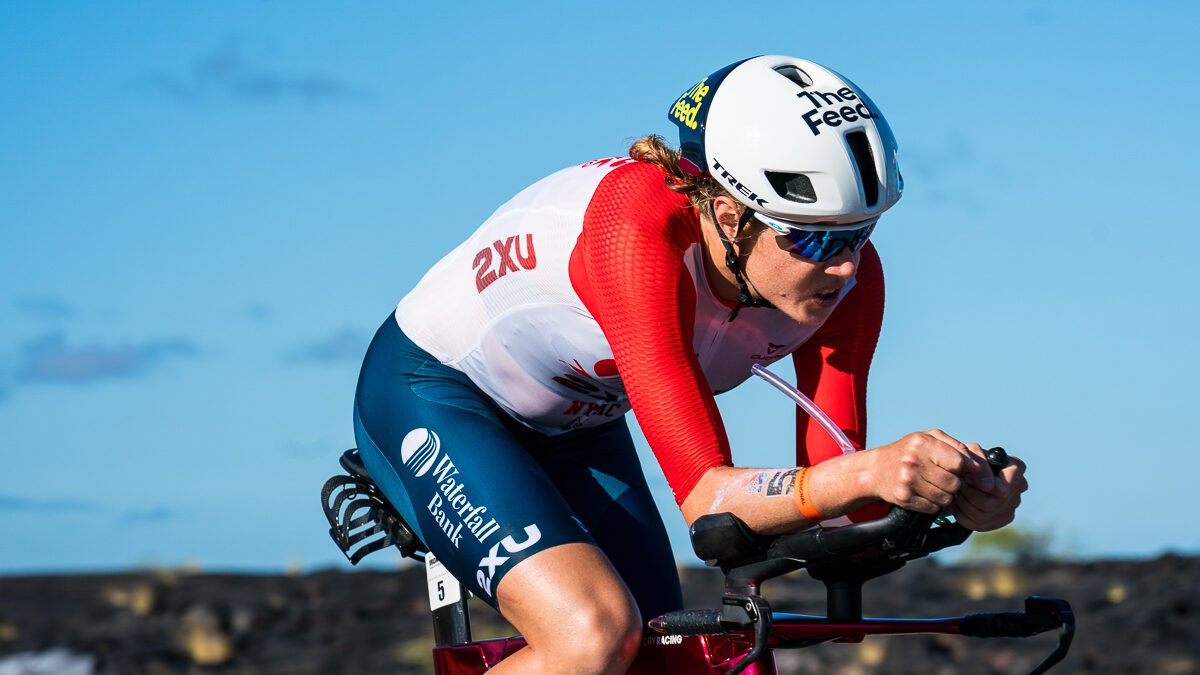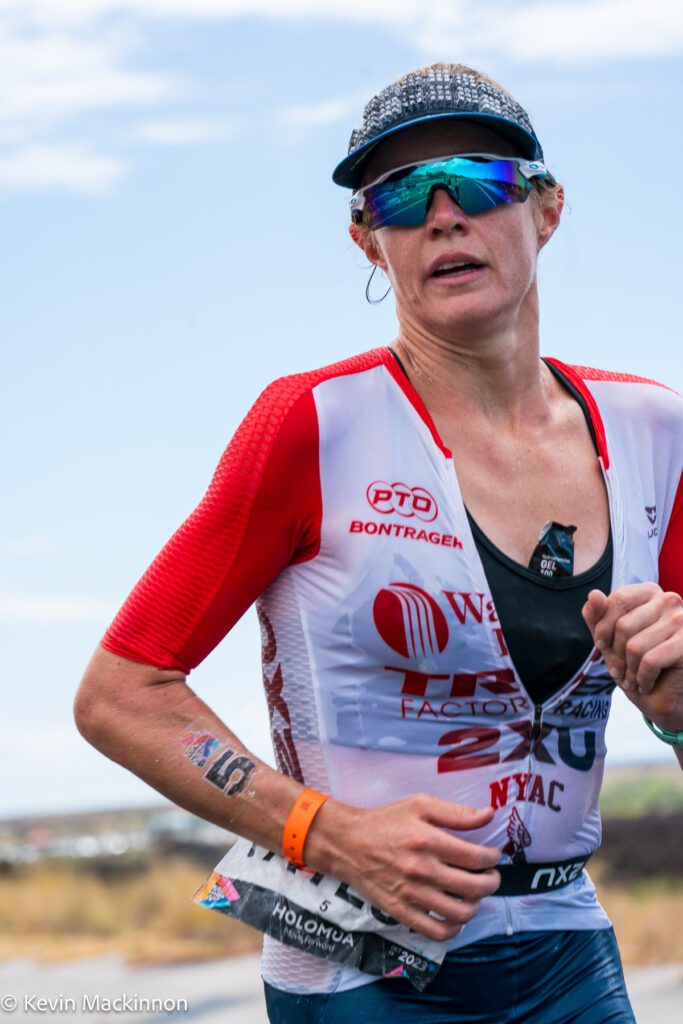Kona Coverage: Taylor Knibb’s “comedy of errors” makes for an impressive Ironman debut
8-time Kona champion Paula Newby-Fraser thinks Taylor Knibb's race in Hawaii will only help the American star prepare for next year's Olympic Games.
 Photo by:
Kevin Mackinnon
Photo by:
Kevin Mackinnon
One of the most watched performances at the Ironman World Championship was that of American Olympian and two-time 70.3 world champ Taylor Knibb. The 25-year-old earned her spot in Kona thanks to her 70.3 worlds win in St. George last October, and took on the challenge of her first Ironman (and first run longer than 30 km) last Saturday. Despite being “fed a few” challenges, Knibb managed a fourth-place finish.

No less an expert on racing the Ironman World Championship than Paula Newby-Fraser was impressed by Knibb’s performance.
Kona Coverage: Looking back at the Ironman World Championship with legend Paula Newby-Fraser
“Taylor was having one rookie “mishap” after another,” Newby-Fraser said on The Life of Tri podcast. “She lined up on the other side in the swim and she never really gave herself a chance. She put herself on the back foot in the swim by lining up where she did. It was like a comedy of errors. The stopping to get herself loaded up in the bike, having to sit in the penalty tent.”
(Knibb lost three water bottles from her bike during the race, which landed her in the penalty tent for a minute as she served a penalty for unintentional littering.)
“Taylor is not only talented, she is such a unique personality and process that she has going on in her head and it’s what makes her special,” Newby-Fraser continued. “I am so keen to see where she goes with everything.”
Newby-Fraser also feels that the Kona experience will only help Knibb at the Olympics next year, and that her first full-distance race this fall won’t hurt her preparations for the Games in Paris next summer.
“She’s young enough to absolutely do that,” Newby-Fraser said. “It’s not a problem for her. She has that range and she’s 25 years old. I think back to when I was 25. ‘Go do a 50-mile race – sure, why not?’ Would that make any impact on doing an Olympic-distance race. As long as she can keep herself healthy, I don’t think it makes any impact on her at all.”
“The outcome from this experience will only make her body stronger, her mind stronger,” the eight-time Kona champ continued. Newby-Fraser also thinks Knibb can learn from the Kona “mishaps,” which would be even more critical in a short-course race, which will enhance Knibb’s Paris prep, too.
“Do I think it was a bad idea?” Newby-Fraser asks. “Absolutely not.”
Knibb had said before the race that part of her motivation to compete this year was as a way to really be ready for the 2025 Kona event, the next time the women will compete for the Ironman World Championship on the Big Island.

“This is a very special race and I understand why it is so special to the triathlon community,” Knibb said. “I get it … I get why this race needs to be here (in Kona).”
Knibb also felt that the huge amount of attention the Kona race draws will help her deal with the spotlight she’ll face in Paris next summer. That was experience she wouldn’t get at most World Triathlon Championship Series races.
“In terms of a WTS race – no one knows if it even goes on,” Knibb said.
“Last year, do you know what WTCS race was going on the same weekend as Kona?” she asked me. “Last year Cagliari was the same weekend as Kona – see, you didn’t even know that.”
For Knibb, two weeks of rapt attention from the triathlon world was extremely helpful as preparation for Paris.
For the Olympics there is a lot of media, a lot of attention, and the sport tunes in, but it is also the world,” Knibb said, acknowledging that the Olympic scope is even bigger than Kona.
Based on her fourth-place finish in Kona, it seems like Knibb handled the spotlight just fine, while also preparing herself for a true go at a podium finish on the Big Island in two years.
